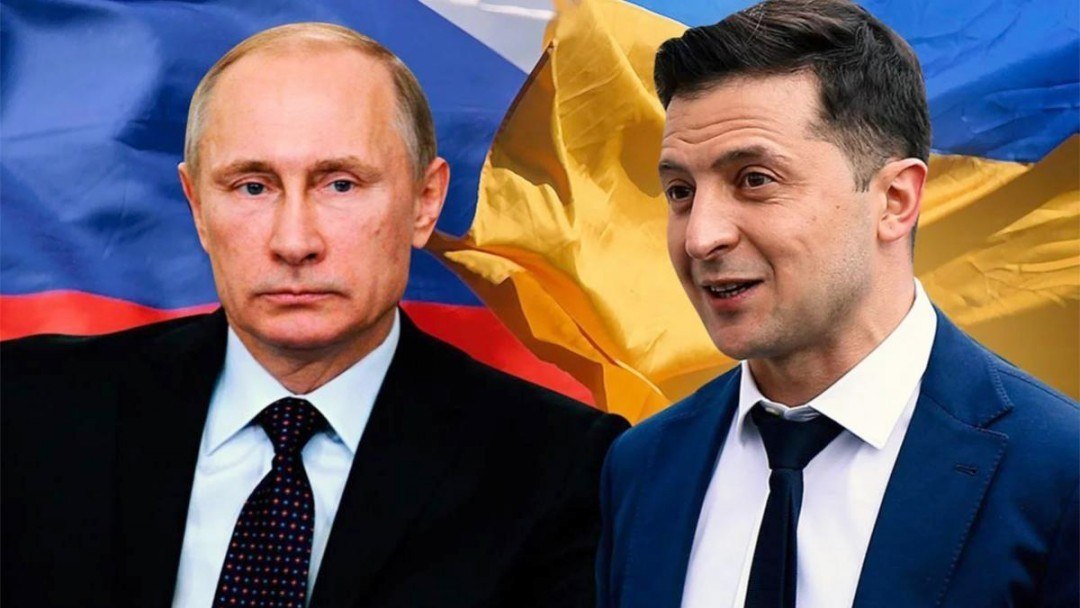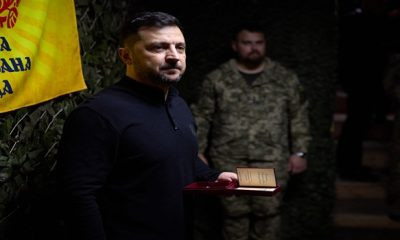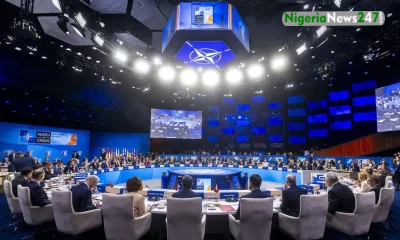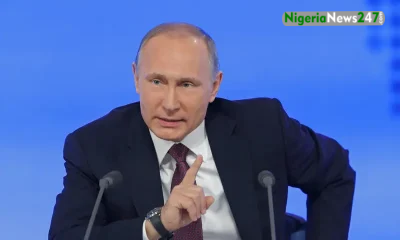WORLD
NATO Strikes Russia Again with ATACMS from Ukrainian Territory, Hits Kursk Region

The recent escalation in the ongoing conflict between Russia, NATO, and Ukraine has raised concerns about the possibility of a broader war. According to reports, NATO forces, allegedly acting from Ukrainian territory, have launched another round of strikes on Russian soil, specifically targeting the Kursk region using ATACMS (Army Tactical Missile Systems).
In response, Russia’s President Vladimir Putin had previously warned that any such action would be met with a firm response, and the launch of the Oreshovka ballistic missile was seen as a symbolic warning to NATO. However, the effectiveness of this strike in deterring NATO’s actions remains in question, as tensions continue to escalate.
The larger geopolitical narrative being painted suggests that NATO’s actions, particularly in Ukraine, are seen by Russia as a direct provocation. The Kremlin has long warned that NATO’s expansion and the establishment of military infrastructure in Ukraine, including missile systems capable of striking Russian territory, would cross a red line.
Now, with Ukrainian forces equipped with advanced missile systems like the ATACMS, Russia perceives this as a realization of NATO’s goals, which President Putin had predicted before the war even began in 2022. This sense of encirclement and the growing proximity of NATO forces to Russian borders has fueled a sense of urgency and the belief that a larger conflict is inevitable.
There is also speculation that NATO’s continued involvement could ultimately lead to direct military engagement, pushing the alliance into open conflict with Russia. As the situation escalates, some analysts believe that NATO might use any direct retaliation from Russia as a justification to officially send troops into Ukraine, thereby declaring martial law and potentially initiating further mobilization efforts across Europe.
This, in turn, could lead to the direct participation of other global powers, such as China and North Korea, who have already voiced their concerns over the growing influence of NATO. China, in particular, has expressed concerns about the potential destabilization of Russia, given the strategic partnership between the two nations, and may feel compelled to act if it perceives that Russia is being cornered by NATO.
The involvement of China and North Korea in the conflict, should it occur, could dramatically change the dynamics of the war, turning what is currently a regional conflict into a broader, potentially global, confrontation. China’s strategic interest in maintaining a strong partnership with Russia is clear, as both nations face growing pressure from NATO and the West.
If Russia were to face significant military setbacks, Beijing might see this as a threat to its own geopolitical standing and would likely intervene to prevent a collapse of its ally. Similarly, North Korea, with its own interests in countering Western influence in the region, could increase its involvement, further complicating an already volatile situation. The potential for a wider war, with multiple global powers engaged, is a growing concern among analysts and world leaders alike.
















![Top Nigeria Newspaper Headlines Today 25th June 2024 [Tuesday] 87 Nigeria Newspaper Headlines](https://nigerianews247.com/wp-content/uploads/2024/04/Nigeria-Newspaper-Headlines-80x80.png)

![[VIDEO] Tinubu Stumbles while Boarding Presidential Parade Vehicle at Eagles Square 90 Tinubu Stumbles while Boarding Presidential Parade Vehicle at Eagles Square](https://nigerianews247.com/wp-content/uploads/2024/06/Tinubu-Stumbles-while-Boarding-Presidential-Parade-Vehicle-at-Eagles-Square-80x80.jpeg)


You must be logged in to post a comment Login